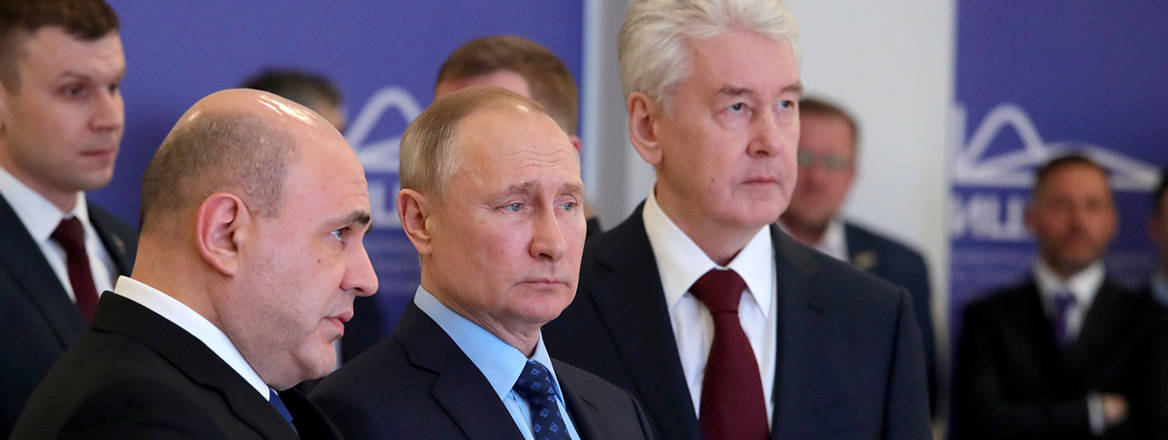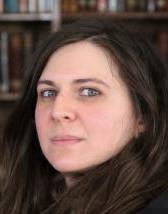How Putin Quashed Internal Power Struggle over Botched Pandemic Response
When his reluctance to be the face of Russia’s pandemic response prompted a competition between two officials to fill the vacuum, Putin swiftly took steps to quash their illusions of power.
As the grim death toll from COVID-19 reaches in excess of 930,000 in Russia and the country braces itself to counter the latest Omicron variant, discussions about the administration’s management of the pandemic have returned to the fore.
Russia’s response to the pandemic might be characterised as a sort of reverse federalisation, with President Vladimir Putin largely ceding responsibility for the most unpalatable and restrictive measures to his regional governors, while he remains at his private residence in Novo Ogaryovo, just outside Moscow. In Putin’s absence, senior members of the political administration have vied with each other for control over the pandemic response, with rivalries at one point threatening to boil over into something more serious. But Putin seems to have suddenly nipped this firmly in the bud, conscious of his presidential legacy and anxious to prevent any fundamental political change.
Hands-Off Putin
At the onset of the pandemic in 2020, regional governors mostly had a free hand in deciding on restrictive measures for their regions, including introducing QR codes for entry to public places, local stay-at-home orders, or vaccine promotion. As COVID-19 cases surged, and in response to requests from the governors, in October 2021 Putin approved a decree allowing a non-working week for the first week of November. But this decree was careful to give regional administrations the autonomy to decide how their cultural and health institutions would operate, which meant that they absorbed the public blowback.
The Kremlin has never imposed a nationwide lockdown in Russia, and while some new legislation that could have made life more challenging for the unvaccinated was mooted, it was eventually abandoned. This hands-off approach certainly allowed Putin to distance himself from unpopular measures. But as the regions were left to their own devices, Putin’s reluctance to be the face of the pandemic response created a leadership vacuum, into which two figures have dipped their toes.
Battle of the Councils
Technically, Prime Minister Mikhail Mishustin and his deputy Tatyana Golikova spearhead the Kremlin’s official pandemic response. But it has been Moscow mayor Sergei Sobyanin who has taken the reins of coordinating a response, who the regional governors look to for leadership, and who has overseen potentially unpopular measures in Moscow such as mandatory working from home and vaccinations for service workers.
Sobyanin’s tougher measures are at odds with Mishustin and Putin’s more moderate approach to the virus, and their desire to reopen the economy
In a very historically Russian way, the tussle for control manifested between committees. A Kremlin body called the Coordinating Council was set up in March 2020 to address the emerging virus, and Mishustin was duly appointed its head, with Sobyanin deputising. But Putin the very next day established a COVID-19 working group led by Sobyanin, under the auspices of the State Council, which, in the hierarchy of the Russian government, answers to a higher authority than the Coordinating Council. Sobyanin’s working group includes senior government officials like Deputy Prime Minister Andrei Belousov and Minister of Trade Denis Manturov, but optically it seemed that Sobyanin was in charge. The fact that Kremlin spokesman Dmitry Peskov then had to publicly explain the chain of command – reiterating that Mishustin’s group took priority, and Sobyanin’s group was subordinate – suggested that the authority on the pandemic response was not clear.
Sobyanin’s Glass Ceiling
The burgeoning rivalry between Mishustin and Sobyanin for control over the pandemic response extended to their crisis management approach.
Many Russian officials’ approaches to policy have been shaped by their political and business backgrounds, and Sobyanin is no different. As a former governor of the Siberian Tyumen region (2001–2005), Sobyanin seemed to look more closely at countries such as neighbouring China for methods to manage the virus, rather than to Europe. Indeed, early on in the pandemic in April 2020, he met with Chinese medical specialists to discuss containment and crisis management, although he has acknowledged that aspects of China’s strict lockdown approach would likely be unsuccessful in Russia. While Sobyanin stopped short of involving the military, he did introduce restrictive measures in Moscow very early, on 5 March 2020, including strict home isolation – the first region to do so.
Some of Sobyanin’s methods have been controversial. The mandatory Social Monitoring app introduced in Moscow in 2020, which tracked the movements of those self-isolating with COVID-19, was branded invasive. App malfunctions meant that incorrect fines were issued to users in excess of 200 million rubles (the project itself cost 180 million rubles), and eventually one of the managers who oversaw the project was fired.
Sobyanin’s tougher measures are at odds with Mishustin and Putin’s more moderate approach to the virus, and their desire to reopen the economy. During 2020, Mishustin began to criticise Sobyanin’s COVID-19 measures, maintaining that they were adversely affecting Russia’s economy. Moscow remains Russia’s financial hub and is where most resources are concentrated, and even temporary stay-at-home orders had economic consequences, with GDP contracting in 2020 by 3%. In contrast to Sobyanin’s orders in June 2021 for all service workers to receive a vaccine, Putin rejected the idea of mandatory vaccines for all, only softly promoting vaccination through ‘encouragement, not coercion’, even as vaccination uptake across Russia’s population remains low. Although Putin has warned of the potential for increasing Omicron infections following the Russian Orthodox Christmas celebrations this January, he is also acutely aware of his presidential legacy in what could be his final term in office, and is wary of suggesting any further restrictions.
Putin is acutely aware of his presidential legacy in what could be his final term in office, and is wary of suggesting any further restrictions
Sobyanin’s Ambitions Crushed
Eventually, it appeared that Putin had had enough of Mishustin and Sobyanin’s rivalry, and he abruptly stifled it, with three key signals.
First, in June 2020, during a Coordinating Council meeting, Mishustin maintained that he would now be overseeing any decrees from Sobyanin’s mayoral office, sending a clear message about the chain of command. Mishustin’s authority was then made official on the Russian government’s website, removing any doubt. Second, a few months later the September 2021 State Duma elections were held, resulting in very few meaningful changes and none of the usual reshuffles, with a comfortable majority for Putin’s United Russia party, ensuring that the same faces remained in charge.
But third and more importantly, a matter of days after the elections, the Federation Council introduced new draft legislation removing the limits on the number of terms that regional leaders can serve. This includes Sobyanin, whose mayoral term of office expires in 2023. Scrapping the term limits allows Sobyanin to remain in office, and Putin does not have to find him another – usually more senior, unless resigning in disgrace – position.
This legislation, coupled with the election results, means that Putin need not consider any staffing changes as he approaches the end of his presidency. It also means that a promotion for Sobyanin is unlikely to be on the cards, and any political ambitions that he might have had as a leader, or even as a potential successor to Putin, have likely been put to bed.
The views expressed in this Commentary are the author’s, and do not represent those of RUSI or any other institution.
Have an idea for a Commentary you’d like to write for us? Send a short pitch to commentaries@rusi.org and we’ll get back to you if it fits into our research interests. Full guidelines for contributors can be found here.
WRITTEN BY
Emily Ferris
RUSI Senior Associate Fellow, International Security


